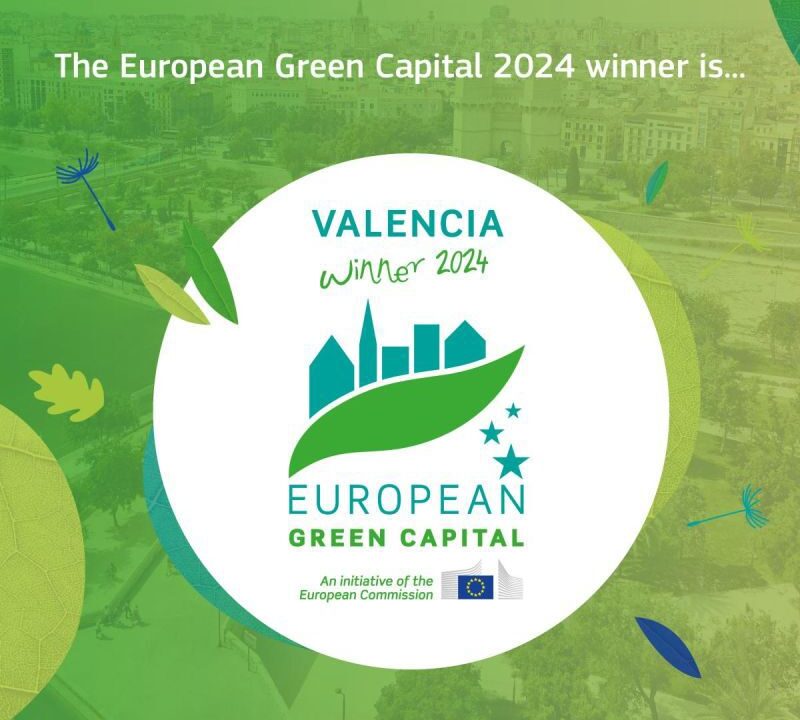
In 2024, Europe’s greenest city officially moved from Estonia’s Baltic coast to the Spanish Mediterranean. In a ceremony held last week, Valencia replaced Tallinn as the European Green Capital.
The prize has been awarded since 2010 and generates a healthy rivalry between major EU cities in their transition to clean energy, protecting nature and improving the living conditions of their residents.
“Valencia has earned the title of Green Capital thanks to its ambitious sustainability strategy and has learned lessons from the past,” says Virginijus Sinkevicius, European Commissioner for Environment, Oceans and Fisheries.
Why is Valencia the greenest city in Europe?
Valencia has over two million square meters of gardens, making it a popular tourist destination for the rest of Europe. Just 10 km south of the center is the Albufera National Park, a protected lagoon that has been called the “green lungs” of the city.
The city has been commended by the Commission for working with residents to achieve climate and environmental neutrality goals.
As part of its mission to achieve climate neutrality by 2030, a number of green initiatives are being launched across the city. Many of these are located in the Cabañal neighborhood, which is historically home to the local fishing community. For example, at the 3,500 square meter Cabañal Municipal Market, air conditioning is now provided by rooftop solar panels.
Nearby, in Las Naves, Valencia’s first “socialized solar power plant” is 80% funded by individual citizens who contribute between 100 and 2,000 euros each to participate in the renewable energy generator. Other green initiatives include smart lighting on the waterfront, where more than 20,000 streetlights with energy-saving technology have been installed. Streetlights are also being turned into charging points for electric vehicles thanks to the EU-funded MATchUP project.
Also on Valencia’s busy agenda is the celebration of the Climate Summit, which will bring together more than 200 European cities to catalyze the continent’s progress towards climate neutrality. This year, the city will receive 350,000 euros from the EU to improve the city’s environmental factors.

